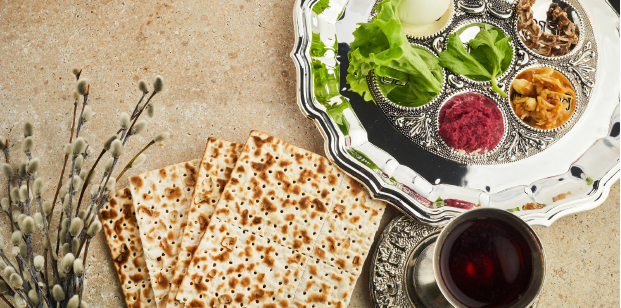Kosher wine has stepped up and out of the shadows. Once a syrupy sweet concoction made of Concord Grapes barely deserving of being in the “wine” category, it is now award-winning and globally produced with exceptional winemakers crafting vintages from grapes such as Pinot Noir, Sancerre, and Malbec, or in the case of, BriO Château Cantenac Brown, Cabernet Sauvignon blended with more Merlot than is traditional in this very modern Margaux.


Vineyards are not just where you’d expect them well above sea level in Israel. You’ll find exceptional Kosher wines now being crafted with notable results in California, France, Italy, and Spain, as well as South Africa where ESSA and J Folk wineries are remarkable producers.
WORLD-CLASS
It’s said that there’s nothing cookie-cutter about this category today, indeed Kosher wine has become a world-class, distinctive, sophisticated choice for a Passover Seder where ritual prescribes drinking four cups of wine. Although Kosher winemaking is overseen by “sabbath-observant Jews,” there is no exclusively Kosher winemaking technique. The grapes are of the same outstanding quality as any other wine however these vintages are branded kosher-for-Passover wine with the “P” symbol or “Kosher for Passover” next to the Kosher certification on the label.


No matter where you select a Kosher wine from, or at what price (Kosher wines range in price from about $15 to $75, with Cognac being significantly higher), you’ll be rewarded with a delicious pairing for your Passover Seder. Here are our recommendations by region with brief tasting notes. L’chaim!
ISRAEL
· Kamisa Winery Vanilla and anise, earthy with notes of red fruit.
· Shamay Winery Cabernet Sauvignon aged in French oak barrels.
· New Carmel Black Cabernet Sauvignon Ripe fruit, cassis, and hints of tomato leaf.
· Herzog Lineage Momentus Rose Pomegranate, raspberry, and tart cherry.
ITALY
· Cantina Giuliano Supple, well-balanced Chianti reflecting the genuine flavors of the Tuscan countryside.
· Lovatelli Barbera d’Asti Ripe strawberries, red cherries, and raspberries.
· Rocca delle Macie Chianti Classico From a world-famous producer rich, intense cherry, plum, and spice.
FRANCE
· Aurore de Dauzac Margaux ’21 Savory and classic, crispy black fruits.
· Chateau Roubine Cru Classé Lion & Dragon Red Shiraz/Syrah, Cabernet Sauvignon blend.
· J de Villebois Sancerre Pinot Noir Silky yet clean with a good texture and a finish of crunchy fruit.
· Malbec du Clos Triguedina Cahors Rich, smooth with fruity overtones.
A YOUNGER GENERATION
We’re seeing growth in exceptional Kosher wine, particularly thanks to younger generations, who though bound by Kosher tradition, are thirsty for new wines from as many wine-growing regions as they can possibly explore. Compared to parents and grandparents, this generation is far more educated about wine. Enthusiastically they are seeking to experience a wider variety of Kosher wines, certainly red, the preferred choice for Passover, but also white, sparkling, rose, and dessert wines as well as fine cognacs. And with this desire to look beyond what a family might have accepted in years past comes a stringent demand for higher quality, for wines that don’t opt to compromise taste in order to be certified Kosher.
ISRAEL—THE GOLD STANDARD
Naturally, Israel is the first point of origin you would be likely to consider when selecting a Kosher wine for the Passover Seder. Israeli wines have long been the gold standard in terms of Kosher wine production. And Israel continues to experience a boom in boutique wineries with award-winning wines earning global recognition.
No doubt Israel has led the way and indeed, continues to do so with a steadfast commitment to improvement and innovation in the vineyards and in the cellars, yielding wines of the highest quality. However today you can find a myriad of varieties, regions, and styles of Kosher wine from every corner of the world, influenced by old-world techniques and new-world demands. Kosher wine now is not only reaching new heights in terms of taste but unfettered by expected boundaries, is produced in remote realms like Georgia, the Caucasus region considered Europe’s most isolated country, and New Zealand, Oceania (Asia-Pacific region) which though known worldwide for their Sauvignon Blanc is now yielding a Kosher Pinot Noir.




